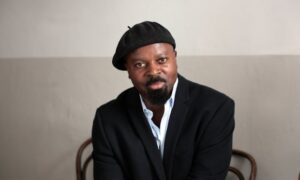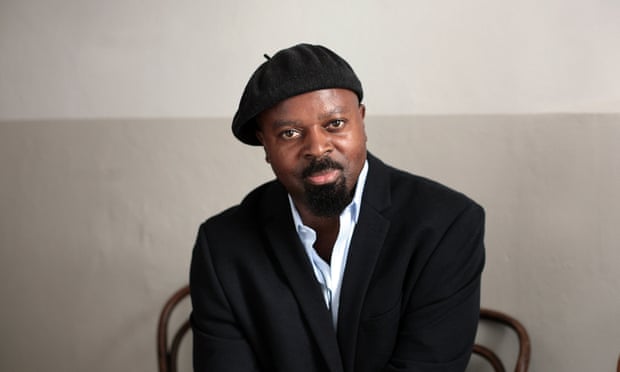Ben Okri, born on this day in 1959, is a Nigerian poet, novelist, short story writer, essayist, aphorist, and playwright.

Ben Okri / Image Source: Author’s Official Website
He is popularly known for his hard-to-categorize style of writing that challenges perceptions of spirituality and reality. His best-known work, 1991 Booker Prize-winning The Famished Road, is the first in a trilogy detailing the life of an abiku (spirit child); Azaro.
Ben Okri is described as one of Africa’s leading writers. He often cites these sources as having a great impact on his works. First is the philosophical texts he used to read on his father’s bookshelves. He was also influenced by the likes of Francis Bacon and Michel de Montaigne, especially for his work, A Time For New Dreams. In addition, the oral traditions of his people and his mother’s storytelling also played huge roles in his passion for writing. Then there was the civil war, which he experienced first-hand, having returned to Nigeria from London on the eve of the Nigerian Civil War.
Apart from The Famished Road, he has also written several other acclaimed works which include Astonishing The Gods, An African Elegy, A Fire in My Head, Prayer For The Living, among many others.
As an internationally-acclaimed author, his works have won numerous national and international prizes. He has also received honorary doctorate degrees, all in recognition of his contribution to literature.
READ ALSO: Why Is Maya Angelou Depicted On A Quarter Dollar?
His epic poem, ‘Mental Fight,’ has been widely read and embraced. He is also a creative writer. In 2009, he invented a new form called the Stoku, which is a cross between a short story and a haiku. This was first displayed in his book ‘ Tales of Freedom’, which has now been re-titled The Comic Destiny, which featured thirteen stokus. He also wrote the text to Peter Kruger’s film N: The Madness of Reason, which later won the 2015 Ensor Award for Best Film.
On his birthday today, we’ll be featuring a poem he used to celebrate the 40th anniversary of Martin Luther King’s “I have a dream” speech.
Title: Children Of The Dream
They will not be satisfied
Till they have had more,
These children of the dream,
These dreaming children draped
In all the colours of the sun.
Till they have had more,
They who are black and white
And all colours of the spectrum,
And all colours of the dream,
They will not be satisfied
Till they have had more.
What more do they want?
They want the earth and the stars
And the beautiful heavens.
They want to be free
And they want the possibilities
That freedom brings. And also
Freedom’s weight and dark side.
They want to love who they want.
They do not want to be defined.
They do not want to be limited.
They do not want to beg for
Their humanity, or the right to be
Creative, or different, or unexpected
Or wild, or surprising, or defying
Of boundaries. They do not want
Condescension, or assumptions.
They want to rebel, even against
Themselves. They want to celebrate,
Even that which didn’t celebrate them.
They want to love the best fruits
Of the earth, in music, in art, and
In dreams. They want to be the best
That freedom promises, without explanation
Or apologies. They want to astonish,
Casually, like angels do. They want to amaze,
Simply, like geniuses do. They want
To fail, bravely, like explorers do.
They want to quest, nobly, like
Passionate pilgrims do. Nothing can
Be too much or too little for them
To dream, and to accomplish, if it
Belongs to the possibility of being human,
The unfathomed magic of the unmeasured
Spirit. And so they let freedom
Sing into their new transformations
Of self everyday. They are the new
Warriors and masters of the earth.
They are the best of what has emerged
From time’s sufferings and history’s love.
They are the children of the dream.
And no prison of mind or steel
Will hold them down any more.
They have burst open the door.
We are all children of the dream.
© Ben Okri.
A happy birthday to the great author!



Fawaz Adepoju